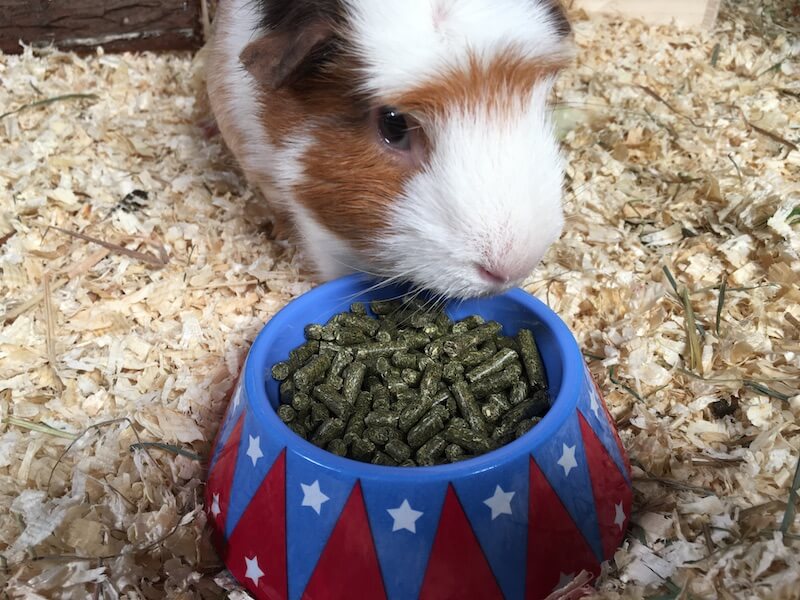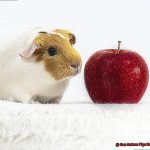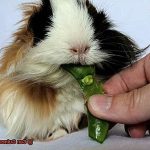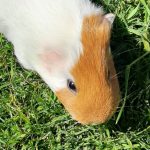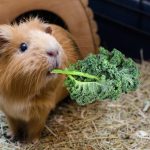If you have a guinea pig as a pet, you may be wondering if they can eat pellets.
While guinea pigs are traditionally thought of as herbivores, the truth is that they can benefit from eating a balanced diet that includes pellets.
Pellets provide essential vitamins and minerals that guinea pigs need to stay healthy, and they can also help keep their teeth in good condition.
In this article, we will discuss the benefits of feeding your guinea pig pellets and how to choose the right type for your pet.
We will also look at some common questions about pellets, such as how much you should feed your guinea pig and what types of pellets are best for them.
Finally, we will discuss some potential risks associated with feeding your guinea pig pellets. With this information, you can make an informed decision about whether or not to include pellets in your guinea pig’s diet.
What are Pellets?
Contents [show]
Pellets are specially formulated feed designed specifically for guinea pigs and made from a variety of ingredients, such as grains, seeds, vegetables, and vitamins and minerals.
The pellets come in a variety of sizes and shapes and can be found in most pet stores or online retailers.
Can Guinea Pigs Eat Pellets?
Yes, guinea pigs can eat pellets.
Pellets are a great source of nutrition for guinea pigs and should be included in their daily diet. Pellets are typically made from a combination of hay, grains, vitamins, and minerals.
They provide essential nutrients like protein, fiber, fat, and carbohydrates that guinea pigs need to stay healthy. Pellets also contain vitamins A, D, E, and K, which are important for maintaining a healthy coat and skin.
When selecting pellets for your guinea pig, make sure to choose a high-quality product that is specifically designed for guinea pigs. Avoid any pellets that contain artificial colors or flavors, as these can be harmful to your pet.
Additionally, it is important to feed your guinea pig the right amount of pellets each day, as overfeeding can lead to obesity. Finally, always make sure that the pellets you feed your guinea pig are fresh and free from mold or other contaminants.
What Nutrients do Guinea Pig Pellets Provide?
Guinea pig pellets provide essential nutrients that guinea pigs need to stay healthy, including proteins, carbohydrates, fats, vitamins, and minerals.
The pellets also contain fiber, which helps keep your guinea pig’s digestive system healthy and functioning properly.
Are Guinea Pig Pellets Safe for Guinea Pigs?
Yes, guinea pig pellets are safe for guinea pigs as long as they are fed in moderation and according to the manufacturer’s instructions.
It is important to check the label on the package to make sure that the pellet is appropriate for your guinea pig’s age and size, as well as any other specific dietary needs they may have.
What are the Benefits of Feeding Guinea Pigs Pellets?
Pellets provide essential nutrients that help keep your guinea pig healthy and happy, such as proteins, carbohydrates, fats, vitamins, and minerals that they would not get from hay alone.
Furthermore, because pellets require chewing to consume, they can help keep your guinea pig’s teeth in good shape.
What are the Risks of Feeding Guinea Pigs Pellets?
The biggest risk associated with feeding your guinea pig too many pellets is obesity due to the overconsumption of calories.
It is important to only feed your guinea pig the recommended amount each day so they do not become overweight or obese from eating too much food overall.
Additionally, some brands of pellets may contain artificial colors or flavors, which can be harmful if consumed in large quantities over time.
Always check the label before purchasing any brand of pellets for your pet guinea pig.
Is it possible to feed Guinea Pigs something other than pellets?
Yes! Hay should always be the primary source of nutrition for your guinea pig.
However, you can also supplement their diet with fresh vegetables and fruits such as carrots, apples, or cucumbers, as well as other treats such as mealworms or yogurt drops (in moderation).
Additionally, some people choose to feed their guinea pigs homemade diets, which consist of a variety of grains and legumes cooked together into a mash-like consistency.
This type of diet should only be fed under the guidance of a veterinarian or nutritionist who can ensure it is nutritionally balanced for your pet’s needs.
How to Choose the Right Pellet for Your Guinea Pig?
When selecting a pellet for your guinea pig, it is important to look at the ingredients list on the package.
Select one that has high-quality ingredients, such as whole grains, rather than fillers like corn meal or wheat middlings, which offer little nutritional value but can contribute significantly to obesity if overfed.
Additionally, look for brands that include added vitamins and minerals, which can help ensure your pet gets all the nutrients they need in their diet!
What Should You Avoid When Feeding Your Guinea Pig Pellets?
It is important to avoid feeding your guinea pig any type of pellet that contains artificial colors or flavors, as these can be harmful if consumed in large quantities over time.
Additionally, it is best to avoid any type of pellet that contains high levels of sugar or fat, which can lead to obesity if overfed.
Finally, it is important not to feed any type of pellet that has been sitting on store shelves for an extended period of time. This can lead to contamination which can lead to illness or death for your pet.
How to Store and Prepare Guinea Pig Pellets?
Guinea pig pellets should always be stored in a cool, dry place away from direct sunlight.
Once opened, the pellets should be stored in an airtight container in the refrigerator.
This can help preserve the nutrients in the pellets so they last longer.
Additionally, it is important to read the instructions on the bag before feeding the pellets to your guinea pig.
Some brands may need to be lightly moistened before feeding to make them easier to chew.
How Many Pellets Should Guinea Pigs Eat?
Guinea pigs should be fed a balanced diet consisting of hay, fresh vegetables and fruit, and a small number of pellets each day.
The number of pellets you feed your guinea pig will depend on their size and activity level; generally speaking, an adult guinea pig should be fed about one-quarter cup of pellets per day while younger guinea pigs may need less than that amount.
Conclusion
In conclusion, guinea pigs can eat pellets as part of their diet.
Pellets are a great source of nutrition for guinea pigs, providing them with all the essential vitamins and minerals they need to stay healthy.
However, it is important to remember that pellets should not be the only food in a guinea pig’s diet.
They should also be given fresh vegetables and hay to ensure they are getting a balanced diet.
Additionally, it is important to check the ingredients in the pellets you buy to ensure they are suitable for guinea pigs and free from any additives or preservatives.
With a balanced diet of pellets, fresh vegetables, and hay, your guinea pig will stay healthy and happy.

